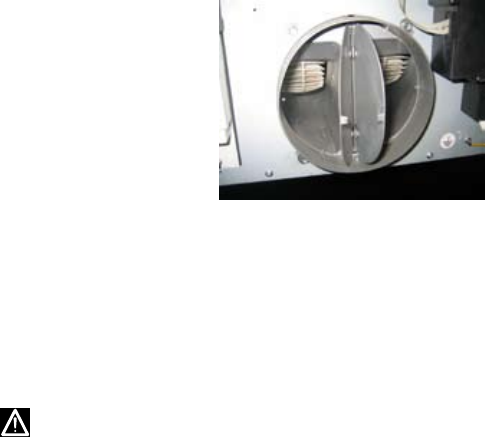
19
UTILISATION
This product is intended to extract fumes, fats, and steam from cooking. It has been designed and made for use
either in the suction or filter versions.
VERSION EVACUATION exterieure
The hood is equipped with an air outlet to convey smoke outwards (the flue pipe and fixing flange are not sup-
plied).
Check valve blockage
Warning: Before connecting the air exhaust hose, make sure that the check valves are free to
turn over freely.
For hoods with outside air exhaust, fit a check valve to prevent wind and returning air from
entering.
Recirculation model
If it is not possible to fit an exhaust flue for smoke and fumes to be discharged outside, it is
possible to use the recirculation model. Carbon filters are required for this type of hood. The
recycled air is discharged back into the kitchen via a pipe that conveys it out through one side
of the unit (Fig. 14 bis).
Installation must conform to the regulations in force regarding the ventilation of en-
closed environments. In particular, discharged air must not be channelled into a conduit
used for exhaust discharge or discharge from devices that operate with gas or other com-
bustible materials. The use of unused conduits is not permissible without the approval of
a qualified technician.
The product can be installed at a distance of less than 65 cm from the cook top, according
to the standard EN60335-2-31:1997.
- REMOVAL OF THE FILTER ALUMINIUM CARTRIDGE
- MOUNTING THE CARBON FILTER
The removal and fitting of the grease and carbon filters need to be carried out with the down-
draft in the open position. To open the downdraft, push the ON/1 key. Then remove the front
panel, pushing the upper part of each side at the same time. The panel will rotate forwards to
make it possible to access the grease filters (Fig. 16). Remove the grease filters to access the
carbon filters (Fig. 17). The carbon filters should be changed according to the frequency of
downdraft use and in any case, once every 6 months.


















